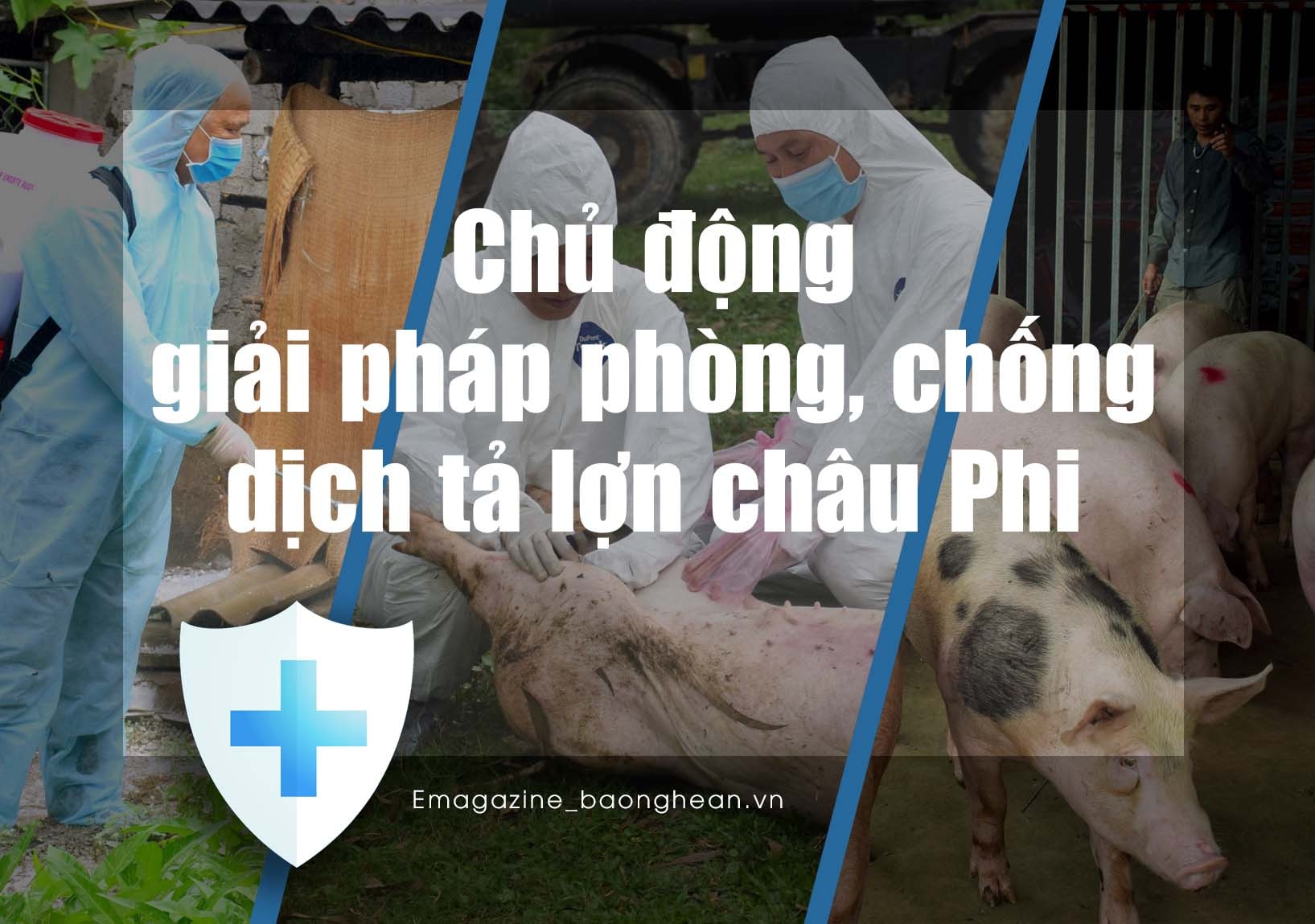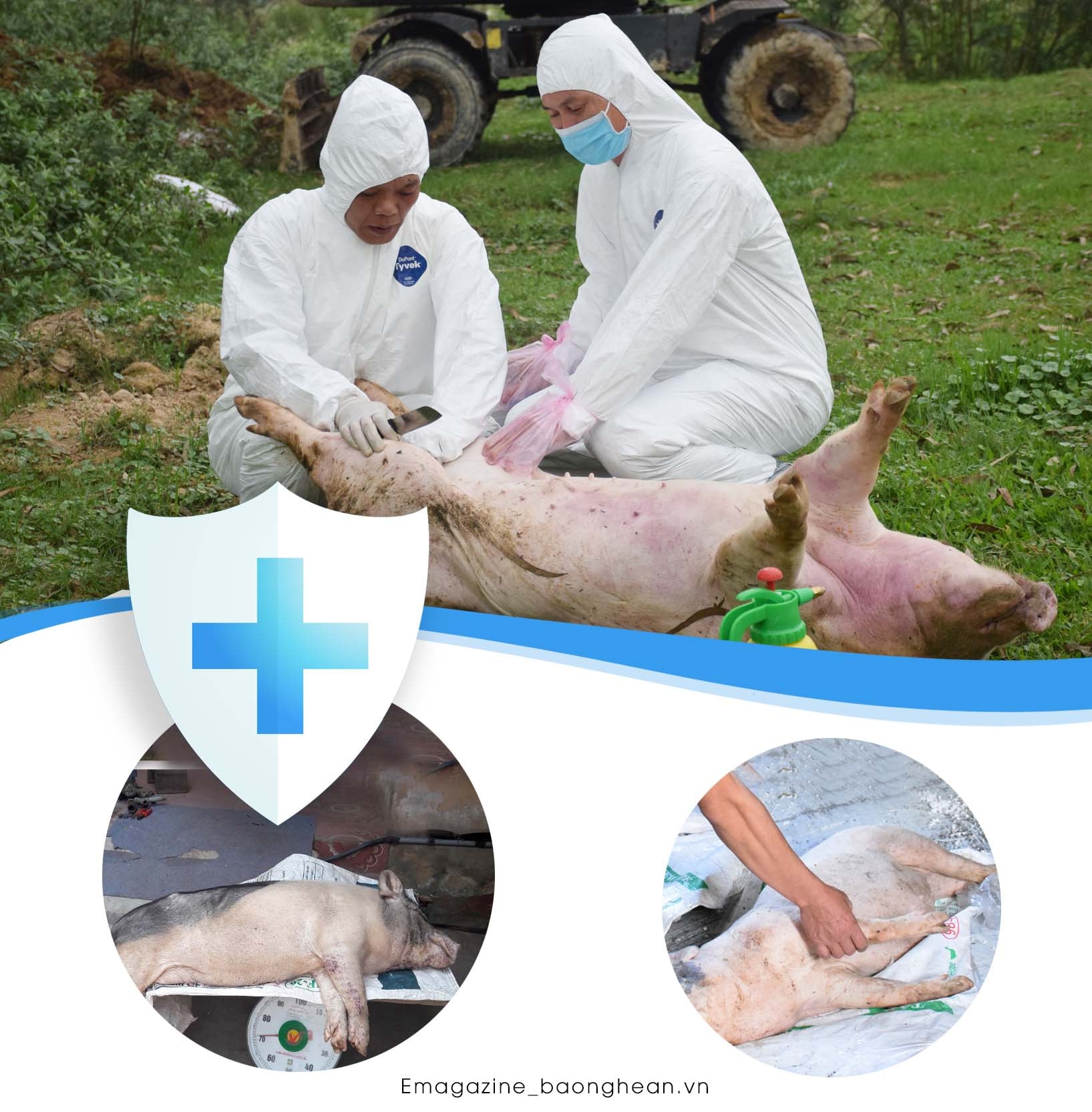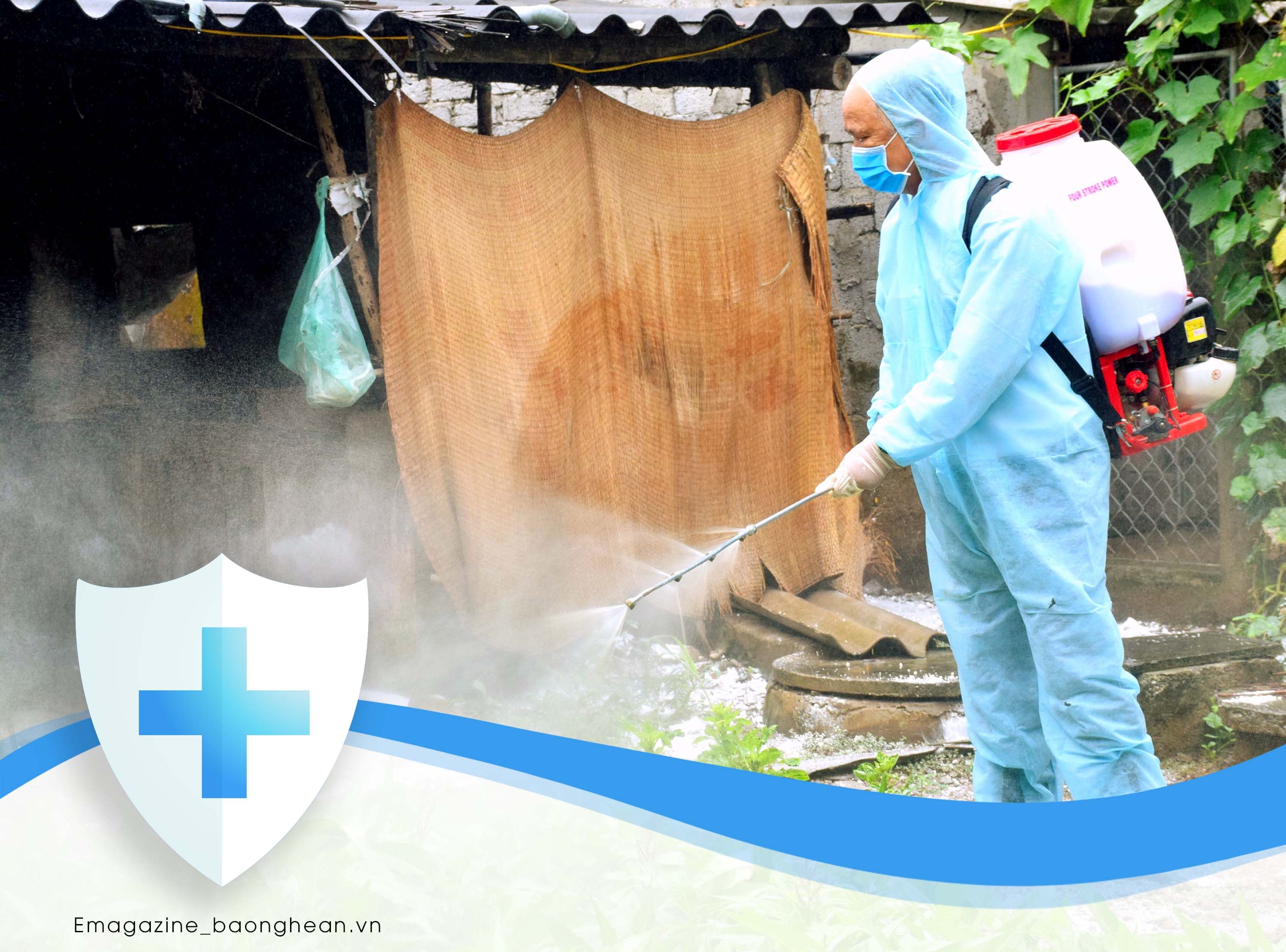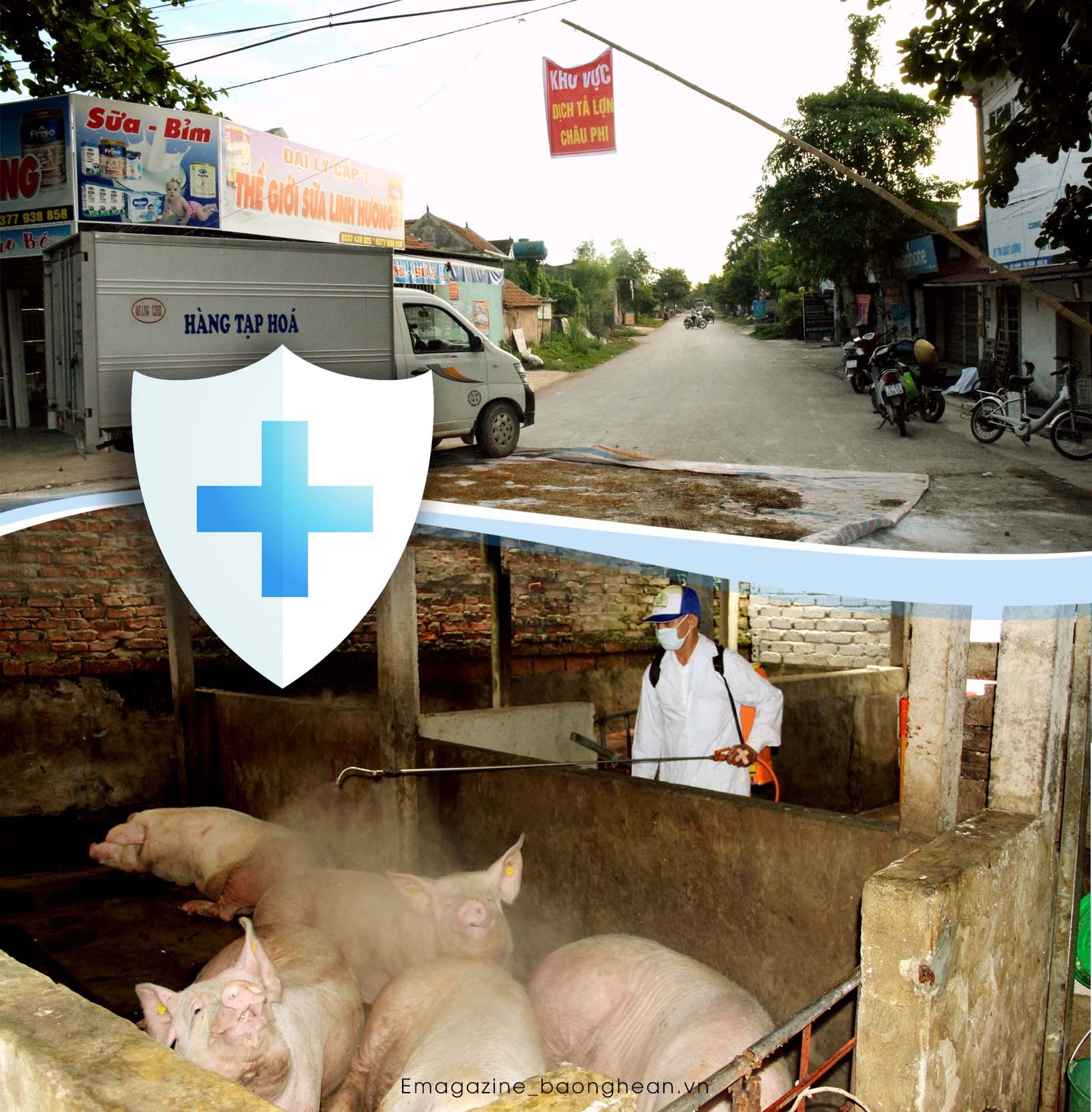


Faced with the possibility of African swine fever re-emerging in many localities, in order to promptly prevent and control this epidemic, the Provincial Department of Animal Husbandry and Veterinary Medicine has proactively advised the Provincial People's Committee and the Department of Agriculture and Rural Development to issue many important documents directing localities to synchronously deploy disease prevention and control work, and at the same time, send inspection teams, guide and urge the implementation of disease prevention and control at the grassroots level. At the same time, the Provincial Department of Animal Husbandry and Veterinary Medicine promptly provides chemicals and supplies to handle small-scale outbreaks.

With the advice of the Nghe An Department of Animal Husbandry and Veterinary Medicine, the Provincial People's Committee issued Official Dispatch No. 21/CD-UBND dated August 11, 2023 on preventing, detecting and strictly handling cases of illegal trading and transportation of pigs across the border into Nghe An province; Official Dispatch No. 7296/UBND-NN dated August 30, 2023 on strengthening disease prevention and control and using African swine fever vaccines; Official Dispatch No. 8276/UBND-NN dated September 29, 2023 on implementing aquatic disease prevention and control during the rainy and stormy season; Report No. 606/BC-UBND dated August 18, 2023 on the results of the review and proposed mechanisms and policies to support animal disease prevention and control.
However, since the beginning of 2023, a number of small-scale African swine fever outbreaks have occurred in the province in some localities with small-scale farming households. The provincial Department of Animal Husbandry and Veterinary Medicine has focused on directing, synchronously, drastically and effectively implementing anti-epidemic solutions, promptly handling and controlling the epidemic in a small area. In particular, promptly taking samples for testing, getting results soon, and providing materials for epidemic prevention and control.

According to the Department of Animal Husbandry and Veterinary Medicine of the province, the cause of the recent outbreak of African swine fever was that the outbreaks occurred at small-scale farms and households that did not ensure biosafety conditions. Meanwhile, the pathogens remained in the farming environment, disinfection and sterilization were not done regularly, and infected animals had not been vaccinated against the disease. In particular, some farming households, due to lack of knowledge about African swine fever, did not report to local authorities and veterinary agencies when their pigs got sick, but arbitrarily sold sick pigs to traders for consumption. This is one of the main reasons why the epidemic broke out and spread widely.

To help farmers recognize the signs of African swine fever in livestock and how to prevent and control it, localities should strengthen propaganda work. If an outbreak occurs, it must be handled promptly, decisively, and thoroughly, not allowing the disease to spread. Arrange locations to destroy pigs and pig products destroyed due to African swine fever according to regulations. Strengthen information and propaganda work in many forms so that cadres, party members, organizations, farmers and the community can grasp, grasp, and understand the level of danger, measures to prevent and control African swine fever and sanctions for organizations and individuals who do not strictly comply with the provisions of law and the direction of competent authorities in disease prevention and control.
Mr. Dang Van Minh - Head of the Provincial Department of Animal Husbandry and Veterinary Medicine said: Nghe An is a locality with a total pig herd of more than 981,000 pigs. According to the assessment of professional agencies, currently, the weather is entering the rainy and stormy season, in the near future there may be unusual cold spells that reduce the resistance and health of livestock, creating conditions for pathogens to develop and cause disease; meanwhile, livestock farming, slaughtering, and trading are mainly small-scale, not meeting the requirements for disease prevention; pathogens are circulating widely in the livestock environment... Therefore, the risk of African swine fever arising and spreading in the coming time is very high.

“To prevent African swine fever, farmers need to implement solutions to disinfect and sterilize the environment, buy breeding animals of clear origin, clean of diseases... especially vaccination. Local authorities at all levels need to direct the entire political system to actively participate in disease prevention and control, especially promoting propaganda work so that people understand the dangers of African swine fever. In particular, Vietnam now has a vaccine to prevent African swine fever, which has been widely deployed in many provinces and cities with safe and effective results,” Mr. Dang Van Minh recommended.
Since May 2022, Vietnam has had two types of African swine fever vaccines (NAVET-ASFVAC researched and produced by NAVETCO Central Veterinary Medicine Joint Stock Company and AVAC ASF LIVE researched and produced by AVAC Vietnam Joint Stock Company) registered and granted a Certificate of Circulation in accordance with the provisions of the Law on Veterinary Medicine, documents guiding the implementation of the Law and international technical standards for veterinary vaccines. These are the first commercial African swine fever vaccines licensed for circulation. The Ministry of Agriculture and Rural Development said that currently, more than 40 provinces and cities nationwide have been vaccinated against African swine fever. Vaccinated pigs are all healthy and growing normally, the rate of vaccinated pigs with high antibody immune response, reaching an average of over 95%.

Therefore, to minimize damage caused by epidemics, first of all, livestock farmers need to properly implement disease prevention and control solutions according to recommendations from veterinary agencies.
